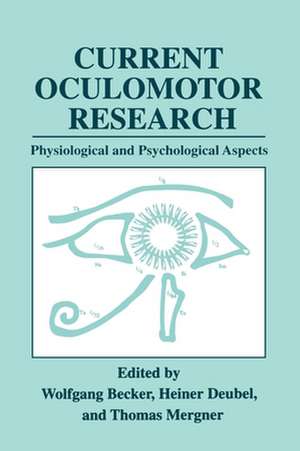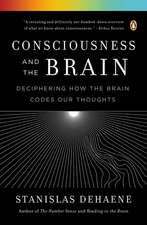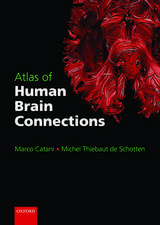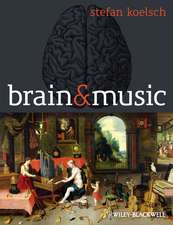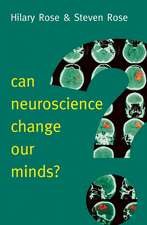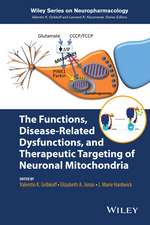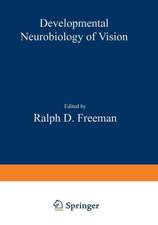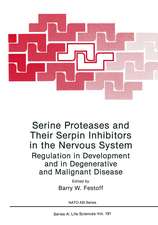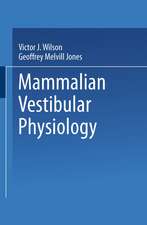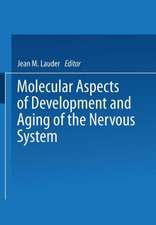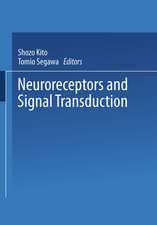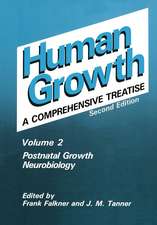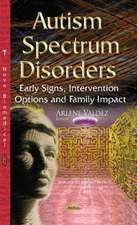Current Oculomotor Research: Physiological and Psychological Aspects
Editat de Wolfgang Becker, Heiner Deubel, Thomas Mergneren Limba Engleză Hardback – 30 ian 1999
| Toate formatele și edițiile | Preț | Express |
|---|---|---|
| Paperback (1) | 1231.78 lei 6-8 săpt. | |
| Springer Us – 30 noi 2010 | 1231.78 lei 6-8 săpt. | |
| Hardback (1) | 1239.37 lei 6-8 săpt. | |
| Springer Us – 30 ian 1999 | 1239.37 lei 6-8 săpt. |
Preț: 1239.37 lei
Preț vechi: 1511.42 lei
-18% Nou
Puncte Express: 1859
Preț estimativ în valută:
237.19€ • 246.71$ • 195.81£
237.19€ • 246.71$ • 195.81£
Carte tipărită la comandă
Livrare economică 12-26 aprilie
Preluare comenzi: 021 569.72.76
Specificații
ISBN-13: 9780306460494
ISBN-10: 0306460491
Pagini: 480
Ilustrații: XII, 480 p.
Dimensiuni: 178 x 254 x 27 mm
Greutate: 1.07 kg
Ediția:1999
Editura: Springer Us
Colecția Springer
Locul publicării:New York, NY, United States
ISBN-10: 0306460491
Pagini: 480
Ilustrații: XII, 480 p.
Dimensiuni: 178 x 254 x 27 mm
Greutate: 1.07 kg
Ediția:1999
Editura: Springer Us
Colecția Springer
Locul publicării:New York, NY, United States
Public țintă
ResearchDescriere
This volume contains the proceedings of the Ninth European Conference on Eye Movements (ECEM 9), held in Ulm, Germany, on September 23-26, 1997. ECEM 9 con tinued a series of conferences initiated by Rudolf Groner of Bern, Switzerland, in 1981 which, from its very beginning, has brought together scientists from very diverse fields with a common interest in eye movements. About 40 of the papers presented at ECEM 9 have been selected for presentation in full length while others are rendered in condensed form. There is a broad spectrum of motives why people have become involved in, and fas cinated by, eye movement research. Neuroscientists have been allured by the prospect of understanding anatomical findings, single unit recordings, and the sequels of experimental lesions in terms of the clearly defined system requirements and the well documented be havioural repertoire of the oculomotor system. Others have been attracted by the richness of this repertoire and its dependence on an intricate hierarchy of factors spanning from "simple" reflexes to visual pattern recognition and spatio-temporal prediction. Neurolo gists, neuro-ophthalmologists and neuro-otologists have long standing experience with eye movements as sensitive indicators of lesions in the brain stem, the midbrain, and the cere bellum. By studying oculomotor malfunctions they have made, and are continuing to make, important contributions to our understanding of oculomotor functions.
Cuprins
Brainstem Anatomy of Saccades and Ocular Following; J.A. Büttner-Ennever, A.K.E. Horn. C-Fos Expression in the Optokinetic Nuclei of the Rat following Different Visual Stimulus Conditions; G. Biral, et al. Neuronal Activity in Monkey Superior Colliculus during an Antisaccade Tas; S. Everling, et al. Space and Salience in Parietal Cortex; K.D. Powell, et al. Parietal Neurons Are Activated by Smooth Pursuit of Imaginary Targets; U.J. Ilg, et al. Properties of Saccades during Optokinetic Responses to Radial Optic Flow in Monkeys; M. Lappe, et al. Erroneous Prosaccades in a Gap-Antisaccade-Task: Production, Correction, and Recognition; B. Fischer, et al. The Subjective Direction of Gaze Shifts Long before the Saccade; H. Dubel, et al. Does Visual Background Information Influence Saccadic Adaptation? J. Ditterich, et al. Effects of Targe Size and Brightness and Fixation Point Size on Human Visually-Guided Voluntary Saccades; Y. Ebisawa. Effects of Warning Signals on Saccadic Reaction Times and Event-Related Potentials; A. Spantekow, et al. Adaptation to Visual Field Defects with Virtual Reality Scotoma in Healthy Subjects; W.H. Zangmeister, U. Oechsner. 54 additional articles. Index.
Recenzii
`... all the procedures in this series should be available in every clinical library at ophthalmological, neurological as well as vestibular clinics.'
Acta Ophthalmologica Scandinavica 2000
Acta Ophthalmologica Scandinavica 2000
